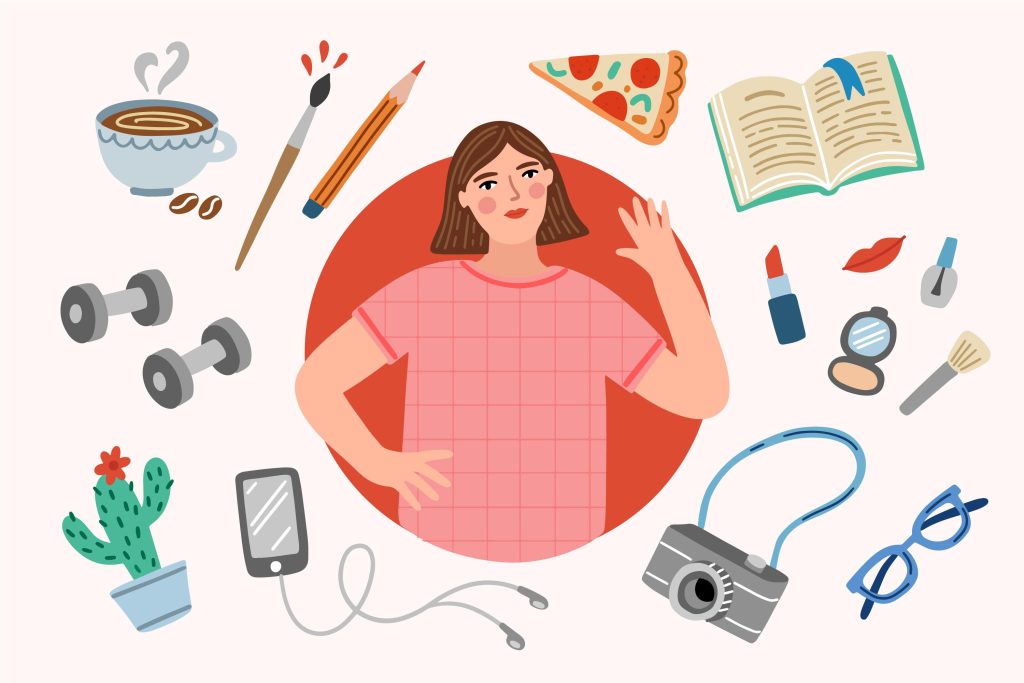Introduction:
We all know how long workdays can feel, especially when deadlines loom or the afternoon slump hits. But did you know that keeping a hobby can make your workdays feel shorter? By integrating a hobby into your routine, you can not only enhance your overall well-being but also boost your productivity and happiness at work. In this article, we’ll explore how hobbies can transform your workday and why they are essential for maintaining a healthy work-life balance.

1. Hobbies Provide a Mental Break from Work
One of the biggest reasons hobbies make workdays feel shorter is that they give your brain a much-needed break. Engaging in an activity you enjoy, whether it’s painting, knitting, or gardening, helps shift your focus away from work. This mental shift allows your mind to recharge and refresh, making it easier to return to your tasks with renewed energy and focus.
Why You Need It:
Studies have shown that taking breaks throughout the day can actually improve productivity. When you step away from work and engage in something enjoyable, you return to your desk with greater creativity and a clearer mindset. This break helps reduce stress and boosts your mood, which is essential for staying energized through a long day.
Example:
If you work in an office setting, try spending your lunch break engaging in a short hobby session. Read a book, sketch, or play a musical instrument for 15 minutes. This mini-break can make a huge difference in how you feel when you return to your work.
2. Hobbies Help Combat Stress and Burnout
The grind of a 9-to-5 job can sometimes lead to burnout, especially if you’re constantly immersed in work without any form of relief. Hobbies provide an outlet for stress, allowing you to unwind and escape from the pressures of the workplace. Whether it’s cooking, hiking, or practicing yoga, engaging in a hobby helps reset your stress levels and rejuvenates you.
Why You Need It:
Stress can make time drag, and when you’re overwhelmed, the workday seems endless. A hobby gives you something to look forward to, creating a healthy balance between work and play. This helps you avoid the negative effects of burnout, making your workdays feel more manageable and less draining.
Example:
Someone who enjoys baking can find joy in spending time in the kitchen after a tough day at work, turning flour and sugar into delicious treats. This satisfying activity not only takes their mind off work but also provides a sense of accomplishment and calm.
3. Hobbies Foster a Sense of Accomplishment
Accomplishing something outside of work can make you feel productive and fulfilled, even if it’s not related to your job. Having a hobby allows you to achieve personal goals that have nothing to do with your career, but still provide a sense of progress and satisfaction. This feeling of accomplishment can boost your self-esteem and help you feel more positive about your workday.
Why You Need It:
When you feel productive and accomplished, time flies. Whether it’s finishing a book, completing a puzzle, or learning a new skill, hobbies give you a sense of achievement. This positive reinforcement helps reduce feelings of dissatisfaction or monotony at work, making your job seem more enjoyable and less of a chore.
Example:
If you’re into photography, setting a goal to capture a new photo every day after work can offer a sense of achievement. You might not notice how quickly the workday passes when you know you’re working toward a personal goal that excites you.
4. Hobbies Improve Work-Life Balance
In today’s always-connected world, it’s easy to get caught up in work and let it consume your time. But maintaining a hobby forces you to set aside time for yourself, creating a better work-life balance. This separation between work and personal time is key to staying mentally healthy and preventing work from taking over your entire day.
Why You Need It:
When you engage in a hobby, you create a boundary between work and relaxation, helping you to disconnect and recharge. Hobbies ensure that you have personal time dedicated to things that bring you joy and satisfaction, reducing the impact of work stress on your personal life.
Example:
Consider the ritual of going for a walk or run after work. This simple yet effective hobby provides a physical and mental break, helping you clear your mind and reset. This separation makes your workday feel more structured and manageable.
5. Hobbies Boost Creativity and Problem-Solving Skills
Many hobbies, such as painting, writing, or playing an instrument, encourage creativity and critical thinking. These activities allow you to express yourself and approach problems from a different perspective. When you engage in hobbies that stimulate your mind, it can translate to improved performance at work.
Why You Need It:
Creative hobbies allow you to think outside the box, which can be helpful when faced with challenges at work. By incorporating creative activities into your routine, you train your brain to think differently, making problem-solving at work easier and more enjoyable.
Example:
A person who enjoys writing poetry or journaling may find that their ability to think critically and express ideas flows more naturally in the workplace. These creative skills can help you develop better solutions to work-related challenges.
6. Hobbies Strengthen Social Connections
Engaging in hobbies that involve social interaction can help build relationships and expand your support network. Whether it’s joining a book club, taking a cooking class, or participating in an online game, hobbies offer opportunities to connect with like-minded individuals, creating a sense of community.
Why You Need It:
When you have social hobbies, you look forward to your interactions and the connections you make. Having people to share your experiences with can make workdays feel more bearable and help you maintain a positive outlook.
Example:
Joining a local fitness group or attending regular knitting sessions with friends can build a sense of camaraderie. These social activities give you something to look forward to after work and make your day feel more balanced.
Conclusion: Hobbies Are the Key to Shorter, Happier Workdays
Incorporating a hobby into your routine can make workdays feel significantly shorter. By giving you mental breaks, reducing stress, providing a sense of accomplishment, and fostering creativity, hobbies enhance your overall well-being. They help you balance the demands of work with personal fulfillment, making your workday more enjoyable and manageable. So, whether it’s learning a new skill, getting outdoors, or spending time with loved ones, find a hobby that works for you—and watch your workdays fly by!
References:
- American Psychological Association (2020). ‘The Importance of Taking Breaks During Work’. Available at: https://www.apa.org
- Harvard Business Review (2021). ‘How Hobbies Can Help You Build Your Skills’. Available at: https://hbr.org
- Psychology Today (2022). ‘Hobbies and Stress Relief: The Science Behind Them’. Available at: https://www.psychologytoday.com









